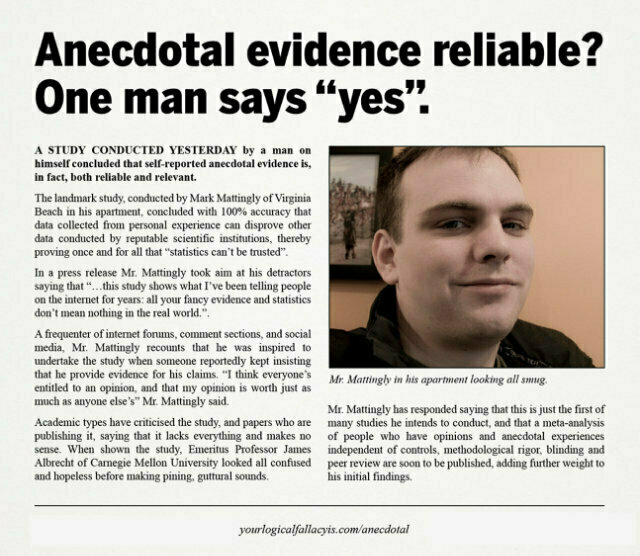
It’s interesting (at least to me) how different systems or professions address the issue of truth. How do we know if an assertion is true?
- Anecdotal: True if there’s some comment about it somewhere
- Arabic: If no one saw it, it didn’t happen
- Cruentation: The victim’s body will bleed in the presence of the murderer
- Islam: Two male Muslim witnesses are needed, except for adultery, when four eyewitnesses are required.
- Journalism: True if two independent sources say the same thing
- Journalism 2: Any sound reverberating in the MSM’s echo chamber
- Kavanaugh: Any assertion must be corroborated by more than one witness
- Law: Whatever 12 strangers agree on after being presented with partial information at a performance
- Literary Criticism: Whatever you can publish with a lot of footnotes.
- Medicine: Any treatment based on any kind of evidence (this is actually a step up from the previous standard, set forth below)
- Ordeal: God will perform a miracle to save the accused if innocent
- Religion: If you believe it or were told to believe it
- Science: Whatever a paid journal publishes on the advice of two or more reviewers, until superseded by another article published and reviewed by two other reviewers.
- Witchcraft: Whatever works even if it didn’t work before
- Zerolis: Greenland may not exist, I haven’t been there.
What can be added to this list?